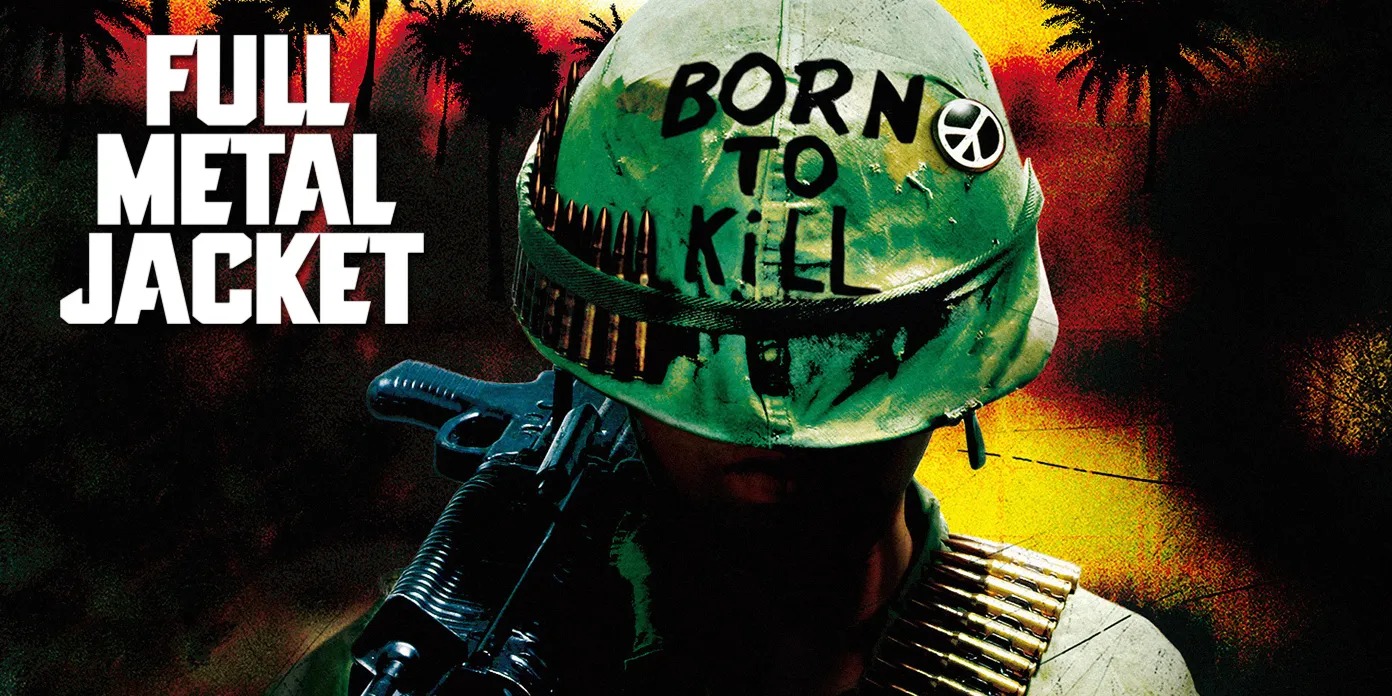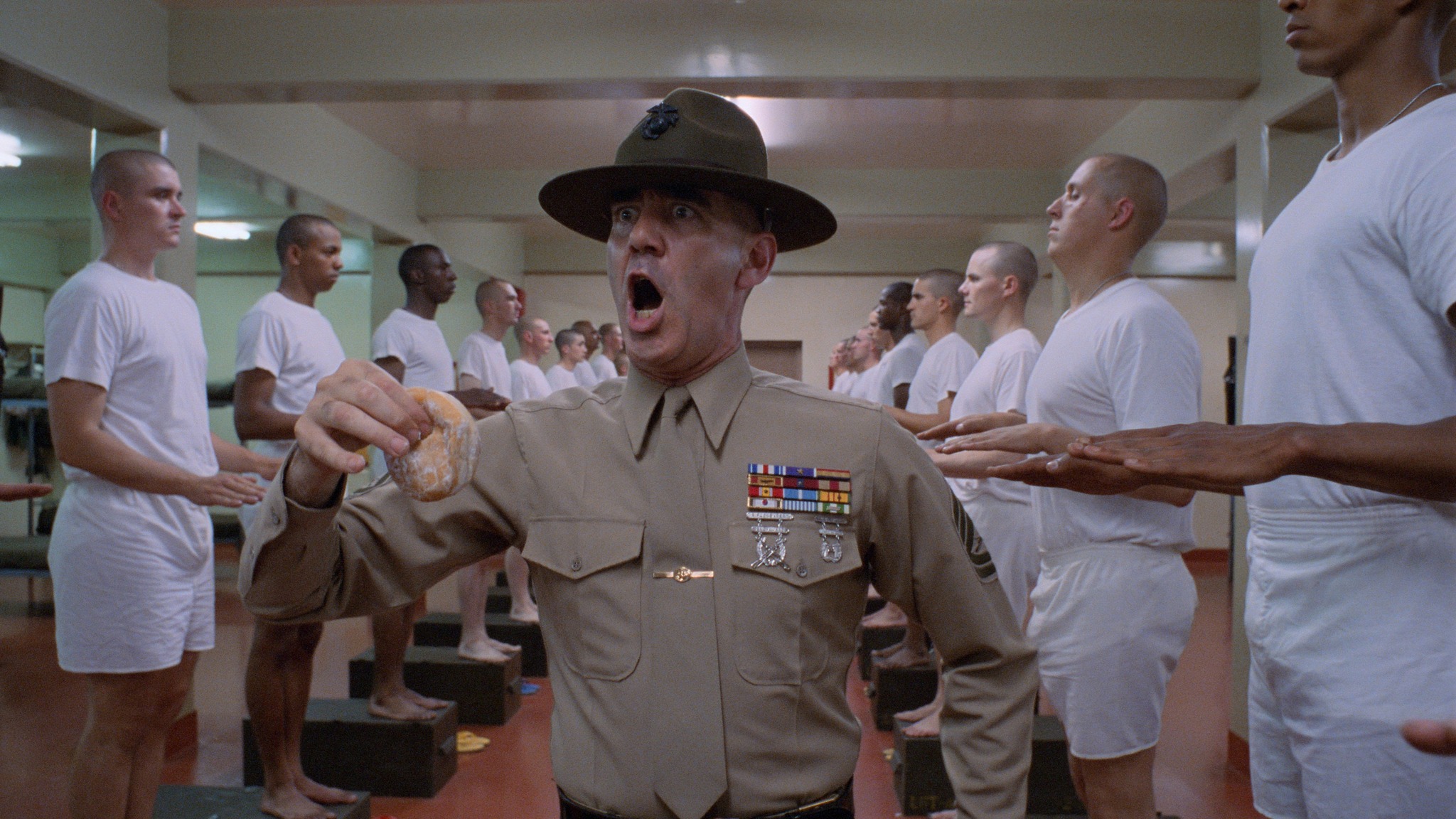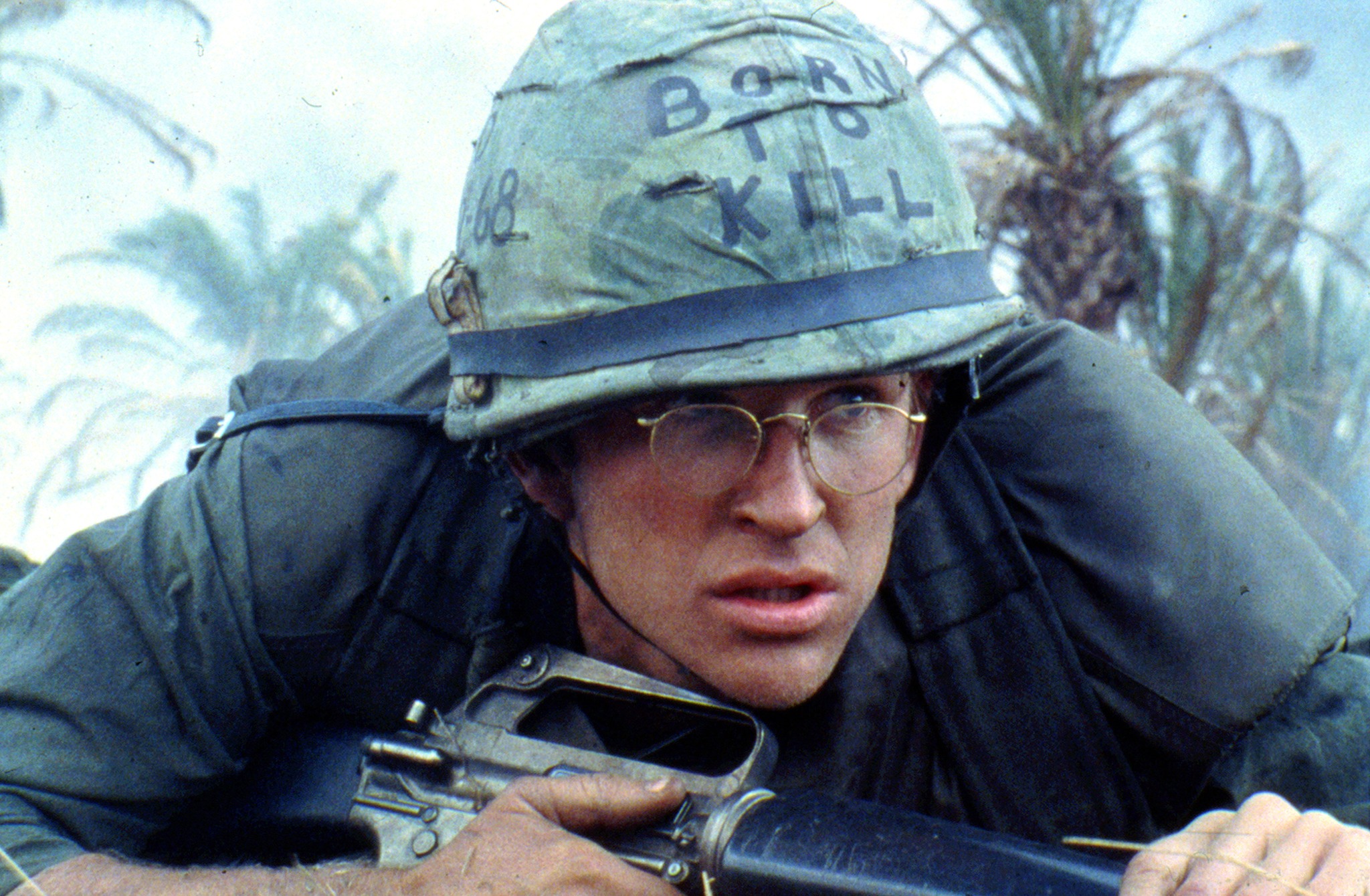🎬 Full Metal Jacket (1987): A Raw Exploration of War and Its Psychological Toll

Director: Stanley Kubrick
Main Cast: Matthew Modine, R. Lee Ermey, Vincent D’Onofrio, Adam Baldwin
Plot Overview: “Full Metal Jacket” is a gripping and intense war drama that delves into the brutal reality of the Vietnam War and its dehumanizing effects on soldiers. Directed by Stanley Kubrick, the film is divided into two distinct parts. The first half takes place at Parris Island, where a group of Marine recruits undergoes harsh training under the sadistic Gunnery Sergeant Hartman. The story follows the transformation of these young men, particularly focusing on Private Joker (Matthew Modine) and the troubled Private Pyle (Vincent D’Onofrio), who struggles to adapt to the rigors of military life.
The second half shifts to the war-torn streets of Vietnam, where Joker, now a war correspondent, confronts the horrors of combat firsthand. The film portrays the psychological and moral disintegration of soldiers as they navigate the chaos and violence of war. Kubrick’s unflinching direction captures the futility and madness of war, making “Full Metal Jacket” a powerful commentary on the human condition in the face of conflict.
Why You Should Watch:
- Iconic Direction by Stanley Kubrick: Kubrick’s direction in “Full Metal Jacket” is masterful, combining his signature meticulous attention to detail with a haunting portrayal of war. The film’s stark, almost clinical depiction of violence and its impact on soldiers is both unsettling and thought-provoking.
- Unforgettable Performances: R. Lee Ermey’s portrayal of Gunnery Sergeant Hartman is iconic, blending terrifying authority with dark humor. Vincent D’Onofrio delivers a harrowing performance as Private Pyle, whose tragic journey from innocent recruit to broken soldier is one of the film’s most powerful elements. Matthew Modine’s nuanced portrayal of Private Joker anchors the film, providing a perspective that evolves from cynicism to a grim understanding of war.
- Realistic Depiction of War: “Full Metal Jacket” doesn’t romanticize war; instead, it presents a brutally honest portrayal of the Vietnam War’s impact on soldiers. The film explores themes of identity, masculinity, and the psychological toll of combat, making it a profound exploration of the human psyche in extreme conditions.
- Cultural Impact: The film has left an indelible mark on popular culture, with its memorable quotes and scenes becoming iconic. From the drill sergeant’s relentless insults to the eerie, surreal atmosphere of the Vietnam War, “Full Metal Jacket” remains a touchstone in the war film genre.
Cinematic Techniques:
- Juxtaposition of Training and Combat: The film’s structure, which contrasts the controlled brutality of boot camp with the chaotic violence of the battlefield, highlights the dehumanizing process of military training and the senseless destruction of war. Kubrick’s use of this dual narrative adds depth to the film’s exploration of the psychological effects of war.
- Visual Style: Kubrick’s precise and often symmetrical framing creates a sense of unease throughout the film. The use of long takes and tracking shots immerses the viewer in the environment, whether it’s the claustrophobic barracks of Parris Island or the devastated streets of Vietnam.
- Soundtrack: The film’s soundtrack, featuring a mix of 1960s pop songs and haunting original compositions, contrasts sharply with the grim subject matter. This juxtaposition adds to the surreal, disorienting experience of the film, emphasizing the disconnect between the soldiers’ inner lives and the external horrors they face.

Legacy and Influence:
- Impact on War Cinema: “Full Metal Jacket” is often cited as one of the greatest war films ever made, influencing countless other movies in the genre. Its unflinching portrayal of war’s psychological toll has set a standard for how combat and its effects are depicted in cinema.
- Enduring Relevance: The film’s themes of dehumanization, the loss of innocence, and the absurdity of war remain relevant, resonating with audiences decades after its release. “Full Metal Jacket” continues to be studied and analyzed for its complex portrayal of war and its impact on the human soul.
Conclusion: “Full Metal Jacket” is a powerful and disturbing exploration of war and its dehumanizing effects. Kubrick’s direction, combined with unforgettable performances and a stark visual style, creates a film that is as intellectually challenging as it is emotionally devastating. This film is a must-watch for those interested in understanding the true cost of war on the human psyche and the profound impact it has on those who endure it.

Pictured: Private Joker (Matthew Modine), FULL METAL JACKET.











